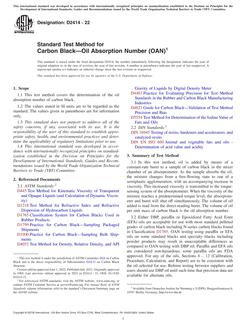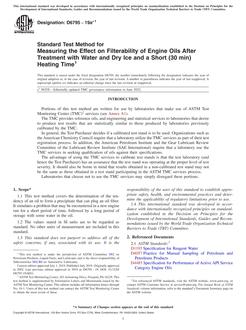1.1 This test method covers the determination of the stability of gasoline in finished form only, under accelerated oxidation conditions. (Warning-This test method is not intended for determining the stability of gasoline components, particularly those with a high percentage of low boiling unsaturated compounds, as these may cause explosive conditions within the apparatus. However, because of the unknown nature of certain samples, the pressure vessel assembly shall include a safety burst-disc in order to safeguard the operator.)
Note 1 – For measurement of oxidation stability of gasoline by measurement of potential gum, refer to Test Method D873, or IP Test Method 138.
Note 2 – The precision data were developed with gasolines derived from hydrocarbon sources only without oxygenates.
1.2 The accepted SI unit of pressure is the kilo Pascal (kPa), and of temperature is °C.
1.3 WARNING-Mercury has been designated by many regulatory agencies as a hazardous material that can cause central nervous system, kidney and liver damage. Mercury, or its vapor, may be hazardous to health and corrosive to materials. Caution should be taken when handling mercury and mercury containing products. See the applicable product Material Safety Data Sheet (MSDS) for details and EPA's website-http://www.epa.gov/mercury/faq.htm-for additional information. Users should be aware that selling mercury and/or mercury containing products into your state or country may be prohibited by law.
1.4 This standard does not purport to address all of the safety concerns, if any, associated with its use. It is the responsibility of the user of this standard to establish appropriate safety and health practices and determine the applicability of regulatory limitations prior to use.
Product Details
- Published:
- 04/15/2012
- Number of Pages:
- 6
- File Size:
- 1 file , 120 KB
- Redline File Size:
- 2 files , 220 KB


